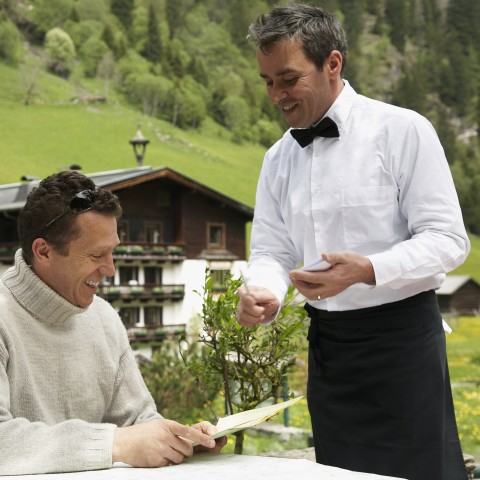
As you progress from a beginner to an intermediate level of Hebrew, you’ll no doubt want to expand your vocabulary so you can both understand and express more language. While anything that adds words to your repertoire is welcome, studying contextualized language based on its function or the circumstances in which it’s generally used can be greatly helpful to language students.
Rather than randomly choosing words out of the dictionary or from the pages of a newspaper or book, we here at HebrewPod101.com have put together a handy list of the top forty intermediate Hebrew phrases, grouped together by category: phrases for speaking about the past, phrases for making recommendations and complaints, phrases for reacting during a conversation, and more. We’ve also included examples of how to use these phrases in realistic contexts.
While forty may not sound like a huge number, we do recommend studying these phrases in chunks. The simplest way to do so is by category, but you could organize them differently if you feel so inclined. The key is not to overwhelm yourself and to commit to periodic reviews of the new words and phrases you acquire; this will ensure long-term retention and rapid recall.
Keeping this in mind, let’s have a look at the top forty Hebrew phrases at the intermediate level.
 Table of Contents
Table of Contents
- Talking About Past Events
- Making and Changing Plans
- Giving Reasons
- Making Recommendations and Complaints
- Everyday Reactions
- General Etiquette
- Up Your Game with HebrewPod101
1. Talking About Past Events

Did you know that human language contains a unique feature not found in animal communication systems? This feature is called “displacement,” and it refers to the ability to talk about things that aren’t concrete objects in front of our eyes. This includes not only abstract concepts like love and honor, but also points in time outside of the present.
Hebrew is a bit simpler than many European languages in that it only really has one past tense (the simple past). That said, one could argue that Hebrew makes up for its lack of variety in tenses with its great flexibility in how the past can be discussed. For example, as you’ll see below, Hebrew has a special word that means “last night”—אמש (emesh). Let’s have a look at some other words and phrases for discussing the past.
1. היה … אתמול/אמש.
Hayah… etmol/emesh.
“It was … yesterday/last night.” / “Yesterday/last night was…” / “I had … yesterday/last night.”
- היה כיף אמש במסיבה.
Hayah keif emesh ba-mesibah.
“It was fun last night at the party.”
- היה לי יום נפלא אתמול בעיר העתיקה.
Hayah li yom nifla etmol ba-’ir ha-’atikah.
“I had a great day yesterday in the old city.”
2. לפני … ימים/שבועות/חודשים/שנים
Lifnei … yamim/shavu’ot/khodashim/shanim
“… days/weeks/months/years ago”
- הגעתי לארץ לפני שלושה שבועות.
Higa’ti la-Aretz lifnei shloshah shavu’ot.
“I got to Israel three weeks ago.”
- לפני עשרה ימים, התחלתי תוכנית אימונים חדשה בחדר הכושר.
Lifnei ‘asarah yamim, hitkhalti tokhnit imunim khadashah be-khadar ha-kosher.
“Ten days ago, I started a new workout plan at the gym.”
3. מעולם/בחיים לא
Me’olam/Ba-khayim sheli lo
“Never” [*note the double negative in Hebrew]
- מעולם לא עשיתי צניחה חופשית.
Le’olam lo ‘asiti tzenikhah khofshit.
“I have never skydived.”
- בחיים לא הכרתי מישהו כל כך מעניין כמו המורה שלנו לעברית.
Ba-khayim lo hikarti mishehu kol kakh me’anyein kemo ha-moreh shelanu le-’Ivrit.
“I’ve never met anyone as interesting as our Hebrew teacher.”
4. פעם
Pa’am
“Once”
- פעם האמנתי לך, אבל היום כבר לא.
Pa’am he’emanti lakh, aval hayom kvar lo.
“Once I would have believed you, but no longer.”
- פעם חלמתי להיות עורכת דין, אבל אז גיליתי את הבלשנות.
Pa’am khalamti lihiyot ‘orekhet din, aval az giliti et ha-balshanut.
“I once dreamt of being a lawyer, but then I discovered linguistics.”
5. בעבר
Be’avar
“In the past” / “… used to”
- קראתי המון ספרים בעבר, אבל עכשיו כבר אין לי זמן.
Karati hamon sefarim be’avar, aval ‘akhshav kvar ein li zman.
“I used to read a lot of books, but I don’t have the time anymore.”
- היינו שם בעבר אבל אני לא זוכר מתי.
Hayinu sham ba’avar aval ani lo zokheir matai.
“We’ve been there in the past, but I don’t remember when.”
2. Making and Changing Plans

Now that we’ve looked at the past a bit, let’s turn our attention to the future. Below, you’ll find some highly useful phrases for discussing plans, including changing them. Remember that Hebrew, unlike English, does not use tense to indicate intended or expected actions. For this reason, it’s important to pay attention to which phrases you can use to express future plans with different connotations and in different contexts. The following intermediate phrases in Hebrew should be a great place to start.
6. בא לך ל…
Ba lekha/lakh/lakhem/lakhen l…
“Do you feel like…” / “Are you up for…”
- בא לך לצאת למסעדה?
Ba lekha latzet le-mis’adah?
“Do you feel like going out to a restaurant?”
- בא לך לראות סרט אצלי בבית?
Ba lakh lirot seret eitzli ba-bayit?
“Are you up for watching a movie at my house?”
7. אתה מצטרף/את מצטרפת אליי ל…?
Atah mitztareif/At mitztarefet elai l…?
“Will you join me for/at…?”
- את מצטרפת אליי למסעדה איטלקית לארוחת ערב?
At metztarefet elai le-mis’adah Italkit le-arukhat ‘erev?
“Will you join me at an Italian restaurant for dinner?”
- אתה מצטרף אליי להרצאה על הגשמה עצמית?
Atah mitztareif elai le–hartza’ah ‘al hagshamah ‘atzmit?
“Will you join me for a lecture on self-realization?”
8. … אתה יכול/את יכולה לבוא…?
Atah yakhol/at yekholah lavo…?
“Can … come (along)?”
- את יכולה לבוא איתי למרכז העיר?
At yekholah lavo iti le-merkaz ha’ir?
“Can you come downtown with me?”
- אתה יכול לבוא לקפה עכשיו?
Atah yakhol lavo la-kafeh ‘akhshav?
“Can you come to the café now?”
9. האם נוכל לדחות…?
Ha’im nukhal lidkhot…?
“Can we postpone…?
- האם נוכל לדחות את הפגישה לשבוע הבא?
Ha’im nukhal lidkhot et ha-pgishah le-shavu’a haba?
“Can we postpone the meeting till next week?”
10. בוא/י נקבע ל…
Bo/Bo’i nikba’ le…
“Let’s schedule/set a time for…”
- בואי נקבע ליום שלישי ב-16:00.
Bo’i nikba’ le-Yom Shlishi be-’arba ba-tzohorayim.
“Let’s schedule for Wednesday at four p.m.”
3. Giving Reasons

Another useful category of phrases for intermediate Hebrew learners consists of those used for giving reasons. Once you’ve gotten comfortable explaining yourself in a more basic way, you’ll want to be able to give people your reason(s) for doing or saying something—especially with such inquisitive conversation mates as Israelis! You can expect us to ask “why” about pretty much everything, in fact! Here are some of the top phrases you can use to explain your reasons or reasoning.
11. …בגלל ש…
…biglal she…
“…because…”
- פניתי אליך בגלל שאת נראית לי סימפטית וקשובה.
Paniti elaiyikh biglal she-at nir’et li simpatit ve-kashuvah.
“I came to you because you seem agreeable and attentive.”
- הגענו באיחור בגלל שהנהג הלך לאיבוד ולא רצה לבקש הכוונה.
Higa’nu be-ikhur biglal she-ha-nahag halakh le-ibud ve-lo ratzah levakesh hakhvanah.
“We arrived late because the driver got lost and didn’t want to ask for directions.”
12. התכוונתי…
Hitkavanti…
“I meant/intended to…”
- התכוונתי להגיע לתערוכה אבל האוטו שלי התקלקל.
Hitkavanti lehagi’a la-ta’arukhah aval ha-oto sheli hitkalkeil.
“I meant to go to the exhibition, but my car broke down.”
13. חשבתי ש…
Khashavti she…
“I thought that…”
- חשבתי שתהיה עייף אז קניתי לך קפה בדרך.
Khashavti she-tihiyeh ‘ayef az kaniti lekha kafeh ba-derekh.
“I thought that you would be tired, so I bought you a coffee on the way.”
14. אתה חייב/את חייבת להבין ש…
Atah khayav/At khayevet lehavin she…
“You must understand that…”
- את חייבת להבין שניסיתי להתקשר, אבל הקו היה כל הזמן תפוס.
At khayevet lehavin she-nisiti lehitkasher, aval ha-kav hayah kol ha-zman tafus.
“You must understand that I tried calling, but the line was constantly busy.”
- אני מבין שאתה כועס אבל אתה חייב להבין שזה לא היה בכוונה.
Ani mevin she-atah co’es, aval atah khayav lehavin she-zeh lo hayah be-khavanah.
“I understand that you’re upset, but you must understand that it was unintentional.”
15. לא סתם…
Lo stam…
“… for nothing” / “It’s no coincidence that…”
- לא סתם קוראים לו דוקטור. הוא יודע על מה הוא מדבר.
Lo stam kor’im lo doktor. Hu yode’a ‘al mah hu medaber.
“They don’t call him ‘doctor’ for nothing. He knows what he’s talking about.”
4. Making Recommendations and Complaints

Another key category of intermediate Hebrew phrases consists of those related to making recommendations or complaints. There is no end to the situations in Israeli life where you’ll find yourself wishing to complain. And it goes without saying that part of the Israeli way is offering advice—including recommendations—whether invited to do so or not!
16. ניסית פעם…?
Nisita’/nisit pa’am…?
“Have you ever tried…?”
- ניסית פעם אוכל קוריאני? זה טעים ממש!
Nisita pa’am okhel Kore’ani? Ze ta’im mamash!
“Have you ever tried Korean food? It’s really tasty!”
17. אני מציע/ה…
Ani metzi’a/metzi’ah…
“I recommend/suggest…”
- בהתחשב במזג האוויר, אני מציעה שנשאר בבית ונבשל משהו.
Behitkhasheiv be-mezeg ha-avir, ani metzi’ah she-nisha’er ba-bayit ve-nevashel mashehu.
“In light of the weather, I suggest that we stay at home and cook something.”
18. כדאי לך לנסות…
Kedai lekha/lakh lenasot…
“You ought to try…”
- אם את אוהבת אתגרים, כדאי לך לנסות טיפוס הרים.
Im at ohevet etgarim, kedai lakh lenasot tipus harim.
“If you like challenges, you ought to try mountain climbing.”
19.לצערי / צר לי לומר ש…
Le’tsa’ari…. / tsar li lomar she-…
“I’m sorry to say that…” / “Unfortunately…”
- לצערי הטיול שלנו לא היה מי יודע מה.
Le’tsa’ari ha-tiyul shelanu lo hayah mi yodei’a mah.
“I’m sorry to say that our trip wasn’t that great.”
- צר לי לומר שאתה לא הטיפוס שלי.
Tzar li lomar she-atah lo ha-tipus sheli.
“Unfortunately, you’re not my type.”
20. אני לא ממליץ/ממליצה על …
Ani lo mamlitz/mamlitzah ‘al…
“I don’t recommend…”
- אני לא ממליץ על כביש החוף. הוא תמיד עמוס בשעות האלה.
Ani lo mamlitz ‘al kvish ha-khof. Hu tamid ‘amus ba-sha’ot ha-eleh.
“I don’t recommend the coastal road. It’s always backed up at this hour.”
5. Everyday Reactions

This category differs somewhat to the previous ones in that it’s a grab bag of reactions that you could use in everyday conversations. They are quite versatile and can take on different connotations depending on how and when you use them. But that’s all the more reason to experiment with them and see how your conversation partners respond.
21. נהדר
Nehedar
“Great”
- -קיבלתי 10 במבחן הסופי!
–נהדר! כל הכבוד!
–Kibalti ‘eser ba-mivkhan ha-sofi!
–Nehedar! Kol ha-kavod!
- -“I got an A on the final exam.”
-“Great! Way to go!”
22. מעולה
Me’uleh
“Wonderful”
- -איך תה הצמחים שלך?
-מעולה! טעים מאוד.
-“How’s your herbal tea?”
-“Wonderful! Really tasty.”
23. חבל
Khaval
“What a shame”
- -יובל אמר שבסוף הוא לא בא לאסוף אותנו.
–חבל. אז נצטרך להזמין מונית.
-Yuval amar she-ba’sof hu lo ba le’esof otanu.
–Khaval! Az nitztareikh lehazmin monit.
- -“Yuval said that in the end, he isn’t coming to pick us up.”
-“What a shame. Now we’ll need to order a taxi.”
24. איזה כיף
Eizeh kef
“Cool” / “What fun”
- -אתה מוזמן לבלות את הסופ”ש אצלנו בקיבוץ.
–איזה כיף. להביא בגדי ים?
-Atah muzman levalot et ha-sofash etzleinu ba-kibbutz.
–Eizeih kef. Lehavi beged yam?
- -“You’re invited to spend the weekend with us on the kibbutz.”
-“What fun. Should I bring a bathing suit?”
25. איזה באסה
Eizeh ba’asah
“What a bummer”
- -שמעת שביטלו את ההופעה בגלל המגיפה?
-כן, איזה באסה. דווקא רציתי ללכת.
-Shama’t she-bitlu et ha-hofa’ah biglal ha-magefah?
-Kein, eizeh ba’asah. Davkah ratziti lalekhet.
- -“Did you hear that they canceled the show due to the pandemic?”
-“Yes, what a bummer. I really wanted to go.”
26. מה אתה אומר/את אומרת?
Mah atah omer/at omeret?
“You don’t say.”
- -ידעת שיש לי אח תאום?
–מה אתה אומר? אתם זהים?
-Yada’t she-yesh li akh te’om?
–Mah atah omer? Atem zehim?
- -“Did you know that I have a twin brother?”
-“You don’t say. Are you identical?”
27. וואלה?
Wallah?
“Really?” / “Is that so?”
- -השבוע קיבלתי הצעת עבודה מחברה בלונדון.
–וואלה? מגניב.
-Hashavu’a kibalti hatza’at ‘avodah mi-khevrah be-London.
–Wallah? Magniv.
- -“This week, I got a job offer from a company in London.”
-“Is that so? That’s great.”
28. נו?
Nu?
“So?” / “What of it?”
- -שמעת את החדשות הבוקר?
-כן, נו?
-שוב הולכים לבחירות!
- -Shama’ta et ha-khadashot ha-boker?
-Ken, nu?
-Shuv holkhim le-b’khirot!
- -“Did you hear the news this morning?”
-“Yeah, so?”
-“We’re having yet another round of elections.”
29. מה זה קשור?
Mah zeh kashur?
“What has that got to do with it/anything?”
- -אתה צמחוני, נכון? אז הבאתי לך ספר על צמחים.
–מה זה קשור? אני צמחוני, לא גנן.
-Atah tzimkhoni, nakhon? Az heveiti lekha sefer ‘al tzmakhim.
–Mah zeh kashur. Ani tzimkhoni, lo ganan.
- -“You’re a vegetarian, right? So I brought you a book on plants.”
-“What has that got to do with anything? I’m a vegetarian, not a gardener.”
30. ומה אתה רוצה/את שאני אעשה?
Ve-mah atah rotzeh/at rotzah she-ani e’eseh?
“What do you want me to do?”
- -שוטר, הבחור שם מפצח גרעינים ברחוב.
-נו? מה את רוצה שאני אעשה?
-Shoter, ha-bakhur sham mefatze’akh gar’inim ba-rekhov.
-Nu? Mah at rotzah she-ani e’eseh?
- -“Officer, that guy there is spitting seeds onto the street.”
-“So? What do you want me to do?”
6. General Etiquette

Last but not least, let’s look at some intermediate Hebrew phrases that can help you with your etiquette. Granted, as anyone who knows anything about Israel is sure to be aware of, Israelis are not world-famous for being polite. But that doesn’t mean you can’t earn some brownie (or halva) points for displaying a basic degree of etiquette and manners. In fact, maybe you’ll get lucky and rub it off on some Sabras! Here are some phrases you can use to add a bit of politeness to any conversation.
35. בתיאבון!
Be-te’avon!
“Bon appetit!”
36. ברוך הבא/ברוכה הבאה/ברוכים הבאים!
Barukh ha-ba/Brukhah ha-ba’ah/Brukhim ha-ba’im!
“Welcome!”
37. הרגש/י בבית.
Targish/Targishi ba-bayit.
“Make yourself at home.”
38. בשמחה.
Be-simkhah.
“Gladly.”
39. נהיה בקשר.
Nihiyeh be-kesher.
“We’ll be in touch.”
40. נסיעה טובה.
Nesi’ah tova.
“Have a good trip.”
7. Up Your Game with HebrewPod101
We hope you’ve enjoyed today’s lesson on intermediate Hebrew phrases. Remember to practice and review them to ensure they “stick.” By the same token, don’t overwhelm yourself. Just focus on a few phrases at a time, and soon enough, you’ll have them all under your belt.
Are you finding yourself perplexed over one of the phrases or examples we’ve provided? Are there any phrases you know that aren’t here but which you think should be? We love to hear from our learners, so please don’t hesitate to contact us; someone on our team of Hebrew pros will do his or her best to help address your concern.
Until next time, shalom!










